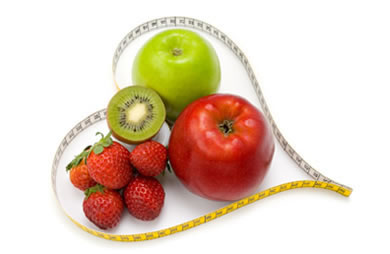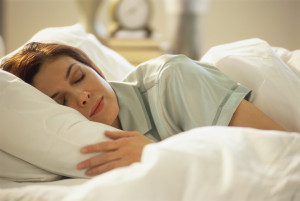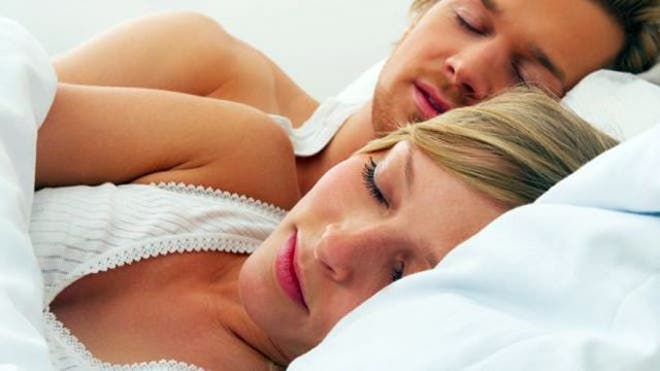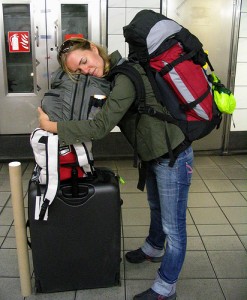 The College of Family Physicians of Canada reports that 65% of all adults suffer from lack of sleep.
The College of Family Physicians of Canada reports that 65% of all adults suffer from lack of sleep.
For many of us the lack of a good night’s sleep is routine – more than 40 percent of adults experience daytime sleepiness severe enough to interfere with their daily activities at least a few days each month, and each of us have different issues and conditions that contribute to not getting a good night sleep.
The definition of sleep is: a natural periodic state of rest for the mind and body, in which the eyes usually close and consciousness is completely or partially lost, so that there is a decrease in bodily movement and responsiveness to external stimuli.
The next time you are having a discussion about how tired you are feeling, try to incorporate some of the “sleep vocabulary” in your next conversation about the lack of sleep.
Bruxism — grinding one’s teeth while asleep.
Circadian rhythm — the daily fluctuation of physiological or behavioral functions that include sleep-wakestates generally tied to the 24-hour daily dark-light cycle.
Hypopnea – refers to shallow breathing, or a transient reduction of airflow that occurs while asleep and lasts for at least 10 seconds. It is less severe than apnea, which refers to a more complete loss of airflow.
Hypersomnia — sleeping for uncharacteristically long periods of time.
Hypersomnolence — excessive daytime sleepiness.
Insomnia – a common sleep problem characterized by: trouble falling asleep, waking frequently during the night, waking too early and can’t get back to sleep.
Melatonin — a hormone secreted by the pineal gland in the brain, produced at night, in darkness, and brings on the urge to sleep.
Microsleep – a brief, fleeting episode of sleep that lasts from a fraction of a second up to 10 seconds. It frequently occurs in sleepy people who are trying to remain awake. These episodes are uncontrollable and can lead to accidents involving cars or heavy machinery.
Narcolepsy — a chronic neurological disorder that involves the body’s central nervous system. A major symptom of narcolepsy is excessive and overwhelming daytime sleepiness.
NREM — slow wave sleep that consists of sleep stages 1 through 4 and is characterized by a gradual decrease of mental activity, body temperature, heart rate and blood pressure. We spend about 75 percent of sleep time in NREM state.
Parasomnias — a wide range of disruptive sleep-related events characterized by full or partial arousal from sleep. They include sleep walking, sleep-related eating, night terrors and bruxism (teethgrinding).
Pavor nocturnus – an episodic emotional disturbance that occurs in sleep. The episodes may include screaming, moaning, gasping, panic, and anxiety.
Periodic Limb Movement Disorder (PLMD) — periodic episodes of repetitive limb movements during sleep.
REM (Rapid Eye Movement) Sleep — the sleep state in which vivid dreaming occurs.
REM Sleep Behavior Disorder — characterized by the lack of muscle paralysis during REM sleep, during which the individual acts out the ongoing dream.
Retrognathia – a small or recessed jaw that may predispose to obstruction of the airway. This may lead to sleep apnea.
Restless Legs Syndrome (RLS) — a neurological movement disorder characterized by unpleasant tingling, crawling, creeping and/or pulling feelings in the legs causing an urge to move in order to relieve the symptoms and resulting in difficulty in falling and staying asleep.
Sleep apnea — a serious, potentially life threatening condition characterized by pauses in breathing during sleep. Sleep apnea may be associated with irregular heartbeat, high blood pressure, heart attack, and stroke.
Sleep deprivation — an insufficient amount of sleep or poor sleep due to difficulty sleeping, disruptions and/or a sleep disorder. Sleep deprivation can have a negative impact on a person’s mood, behavior and performance.
Somniloquy – the act or habit of talking in one’s sleep.
If you suffer from lack of sleep, don’t hesitate to speak to your health care practitioner; remember skimping on sleep can put your health in jeopardy.
 Written By Douglas Robb
Written By Douglas Robb
 The College of Family Physicians of Canada reports that 65% of all adults suffer from lack of
The College of Family Physicians of Canada reports that 65% of all adults suffer from lack of 
 The benefits of a good night’s sleep impacts every area of our daily life. While it may be obvious that sleep is beneficial, most people don’t realize how much sleep they need and why it is so important.
The benefits of a good night’s sleep impacts every area of our daily life. While it may be obvious that sleep is beneficial, most people don’t realize how much sleep they need and why it is so important. Green tea has been used as a medicine for thousands of years, originating in China but widely used throughout Asia this beverage has a multitude of uses from lowering
Green tea has been used as a medicine for thousands of years, originating in China but widely used throughout Asia this beverage has a multitude of uses from lowering 
 Cardiac Rehabilitation Exercise Programs have been shown to improve:
Cardiac Rehabilitation Exercise Programs have been shown to improve: During the winter months most of us spend more time indoors, which exposes us to allergens and irritants like dust mites, pet dander, and household cleaners; and for individuals who suffer from allergies, this can make their lives miserable.
During the winter months most of us spend more time indoors, which exposes us to allergens and irritants like dust mites, pet dander, and household cleaners; and for individuals who suffer from allergies, this can make their lives miserable.
